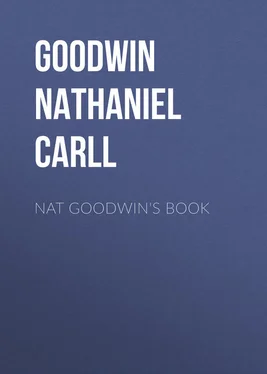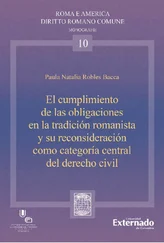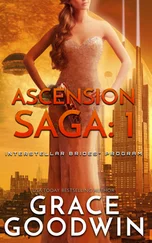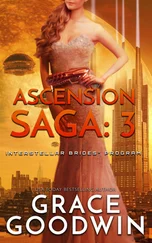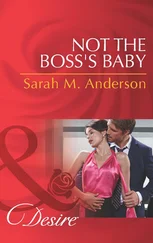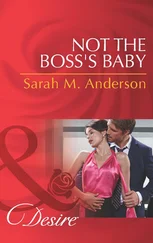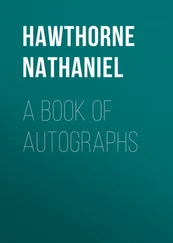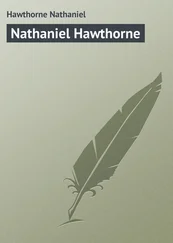Nathaniel Goodwin - Nat Goodwin's Book
Здесь есть возможность читать онлайн «Nathaniel Goodwin - Nat Goodwin's Book» — ознакомительный отрывок электронной книги совершенно бесплатно, а после прочтения отрывка купить полную версию. В некоторых случаях можно слушать аудио, скачать через торрент в формате fb2 и присутствует краткое содержание. Издательство: Иностранный паблик, Жанр: foreign_antique, foreign_prose, на английском языке. Описание произведения, (предисловие) а так же отзывы посетителей доступны на портале библиотеки ЛибКат.
- Название:Nat Goodwin's Book
- Автор:
- Издательство:Иностранный паблик
- Жанр:
- Год:неизвестен
- ISBN:нет данных
- Рейтинг книги:5 / 5. Голосов: 1
-
Избранное:Добавить в избранное
- Отзывы:
-
Ваша оценка:
- 100
- 1
- 2
- 3
- 4
- 5
Nat Goodwin's Book: краткое содержание, описание и аннотация
Предлагаем к чтению аннотацию, описание, краткое содержание или предисловие (зависит от того, что написал сам автор книги «Nat Goodwin's Book»). Если вы не нашли необходимую информацию о книге — напишите в комментариях, мы постараемся отыскать её.
Nat Goodwin's Book — читать онлайн ознакомительный отрывок
Ниже представлен текст книги, разбитый по страницам. Система сохранения места последней прочитанной страницы, позволяет с удобством читать онлайн бесплатно книгу «Nat Goodwin's Book», без необходимости каждый раз заново искать на чём Вы остановились. Поставьте закладку, и сможете в любой момент перейти на страницу, на которой закончили чтение.
Интервал:
Закладка:
I remember the morning Bradford guided me behind the scenes of the old Howard Athenaeum to present me to Stuart Robson. As we entered we found that gentleman in the throes of a busy rehearsal of one of Bradford's plays. As I stood in the entrance faint from excitement Robson stopped, looked toward the entrance where I stood, transfixed, walked toward me and said, "My God, Brad! who is this young man?" Bradford answered, "A young friend of mine who wants to go on the stage. Of whom does he remind you, Rob?" Robson looked at me for a minute, and ejaculated, "Merciful powers, Bob Craig!" After being introduced we shook hands and he said, "Come into my dressing-room, young man, and let me have a good look at you." As we entered the room he seated me upon a trunk, took both my hands in his and with the tears streaming down his face gasped, "Wonderful! Wonderful! I have never seen such a resemblance between two human beings!"
Within a few minutes the rehearsal was dismissed. Bradford and Robson took their seats in the front row of the parquet and I went through my repertoire of imitations. I rendered sixteen and Rob, bless him, always pronounced the last one the best. I was about to leave the stage when Brad insisted that I should give one of Robson. I put a veto upon that proposition and after about fifteen minutes of violent pleading Robson, who understood my feelings, sustained the veto.
Robson immediately offered me a part in the play which he was about to produce, and on the following Monday I appeared in Bradford's play, "Law in New York," as Ned the newsboy, and in the pier scene I first gave my imitations of celebrated actors on the stage of a theatre.
They told me that my stunt went remarkably well, but I have no recollection of what occurred. After I had responded to several encores someone in the gallery cried out, "Give us an imitation of Robson!" It took my breath away, but I stood still and calmly shook my head. I was recalled and still the cry came, "Robson! Robson!" He was standing in the wings and as I came off I said, "What can I do, Mr. Robson? They are clamoring for me to give an imitation of you!" "Do?" said he in that falsetto voice so well known to theatregoers of that period, "Go back and give the villains hell!" On the impulse of the moment I went through an entire scene which the audience had just witnessed between Robson and a favorite player named Henry Bloodgood. As I assumed each voice, particularly Robson's, the applause was deafening, and at the finish, after repeated recalls, Robson was obliged to take me on and make a speech, thanking the audience in my behalf.
After the play Robson said to me, "Young Goodwin, you have done two things tonight that I shall never forget – halted the performance of a very good play and given a very bad imitation of me. I could have done it better myself."
Poor Rob, like all people possessed of conspicuous mannerisms, was never able to detect his even when emphasized by mimicry. One can never see himself in another.
I appreciated this in after life when I was seated in the private box of the Broadway Theatre, New York. A young man named Alf Hampton had given what I considered some remarkably clever imitations of leading actors. Having somewhat of a reputation at that time in this same line and being rather conspicuous that evening I gave vent to my pleasure by applauding most vociferously all of his efforts. To my horror he approached the footlights and announced an imitation of me! As he finished the applause from all over the house shook the rafters, but I could not discover one familiar tone. As he gave the imitation a friend of mine, seated in the front row, looked over and very audibly asked, "Well, what do you think of that, Nat?" I replied, "One of us is rotten."
Poor Bradford dissipated his genius, and died, twenty odd years ago, in penury. I was not present at his death, but fortunately I arrived in time to save him from a pauper's grave, and he now sleeps tranquilly in beautiful Mt. Auburn with his poems and other children of his brain – a happy family known only to the elect. Adieu, dear friend. "Though lost to sight, to memory dear."
Through all my theatrical career up to Robson's exit from life's theatre the closest association and dearest friendship existed between us. He was always my sponsor, my adviser; and what knowledge he bestowed relative to the ethics of our art! Analytically he was master of more of the fundamental rules of acting than even Lawrence Barrett who was an authority. While Robson was never able to convey a sentimental thought by any facial expression or delivery, he could point out correctly the methods required to convey them. Had he not been handicapped by a vocal organ that squeaked forth only fun, his pathos would have equalled John E. Owens' or Joe Jefferson's.
I shall never forget the time when Robson, Crane, and I appeared in an act of "Julius Caesar" at a benefit given to poor Tony Hart. Robson was the Cassius; Crane, Brutus, and I was cast for Antony. We gave the characters all the study and attention due to the great master and were firm in our resolution to play the respective rôles with proper reverence, to bestow upon them all the tragic force and power within our capacities; but the public took the idea in a spirit of jest and came prepared to see us burlesque the characters, never assuming that we were in earnest in our purpose.
The afternoon came. The theatre was packed. I was the first of the trio to make an entrance. Fortunately I came on with the mob and my few lines passed unnoticed, as none in front recognized me. To be sure I was denied the thrills of a reception, but I had the end of an act and was quite content to wait.
The scene was soon over and the full stage of the old Academy of Music opened radiantly as Robson and Crane made their entrances as Cassius and Brutus. They came majestically forth and were greeted by applause that lasted fully a minute. They looked pictures. Forrest and Macready never looked more like Roman senators than those two comedians as they acknowledged the plaudits with true tragic dignity. Then a hush, as the audience settled back for the expected travesty. It needed only the familiar notes of Rob's voice to reassure them that they were right in their conjectures and a shout of laughter went up as he began the speech, "That I do love you, Brutus," etc. The shrieks of laughter interrupted his long thought-out delivery. He paused. His face became livid even through his heavy make up. Then he began the speech again in a more modulated tone. The second time he got as far as "I do love you, Brutus," when another yell blared from the front. He again stopped, bit his lips with suppressed rage and waited a few seconds. It seemed an eternity to us in the entrance. Then Rob raised his hand and by a simple gesture commanded silence.
The laughter soon quieted down as it became apparent that Robson was endeavoring to play the part legitimately and a subdued silence greeted him as he began his speech for the third time. He started in even a lower key and continued the speech. As he got into it he began to feel the meaning of the words and tried to read them with true expression. As he gave them the necessary emphasis his voice, that most ready of organs, refused to obey the dictation of the brain and the gradual crescendo required for the delivery became a succession of Robsonian squeaks! The audience loyally tried to suppress its hilarity. At first it smiled, then giggled, then peals of laughter hurled themselves across the footlights like shots from a Gatling gun. All upon the stage, except poor Robson, heard the merry storm. He was now thoroughly engrossed and squeaked away to beat Gilmore's band, utterly oblivious of the fun he was creating. Thinner and thinner came Rob's squeak; louder and still louder came the laughter until it became a veritable avalanche. As he reached the line,
Читать дальшеИнтервал:
Закладка:
Похожие книги на «Nat Goodwin's Book»
Представляем Вашему вниманию похожие книги на «Nat Goodwin's Book» списком для выбора. Мы отобрали схожую по названию и смыслу литературу в надежде предоставить читателям больше вариантов отыскать новые, интересные, ещё непрочитанные произведения.
Обсуждение, отзывы о книге «Nat Goodwin's Book» и просто собственные мнения читателей. Оставьте ваши комментарии, напишите, что Вы думаете о произведении, его смысле или главных героях. Укажите что конкретно понравилось, а что нет, и почему Вы так считаете.
